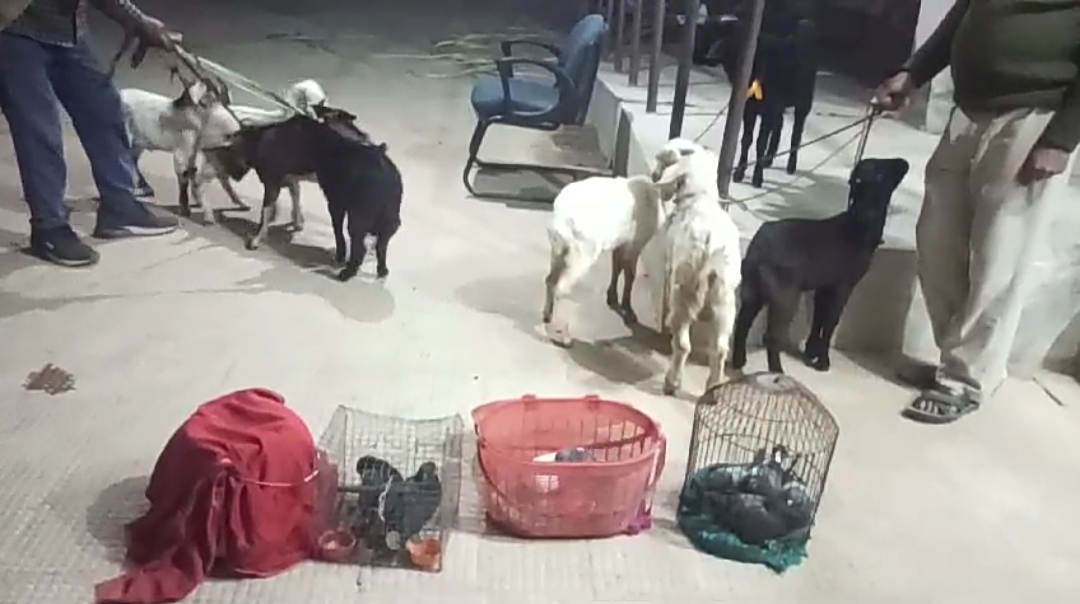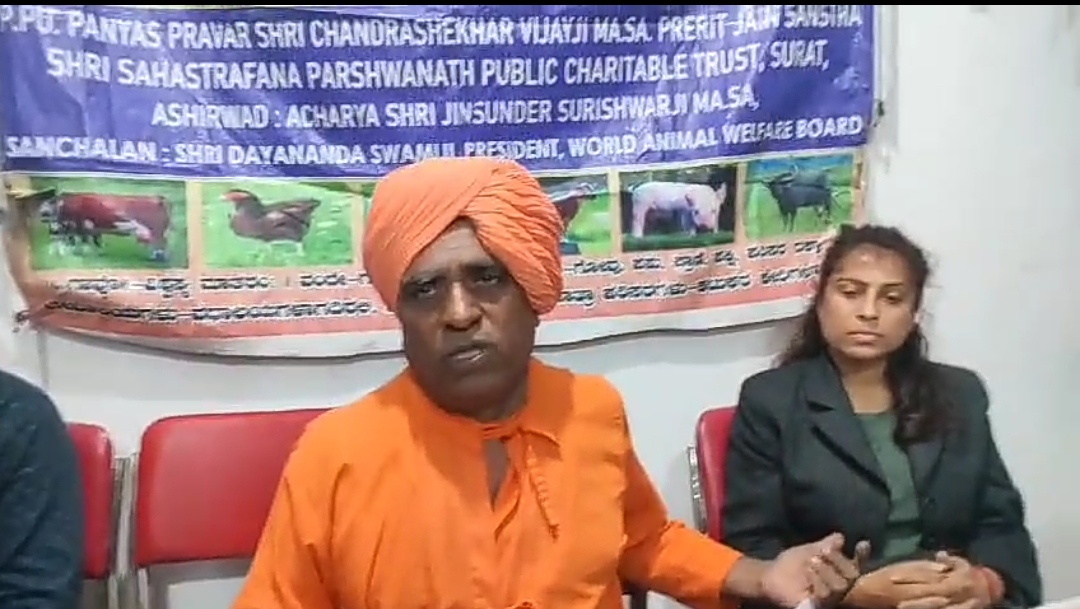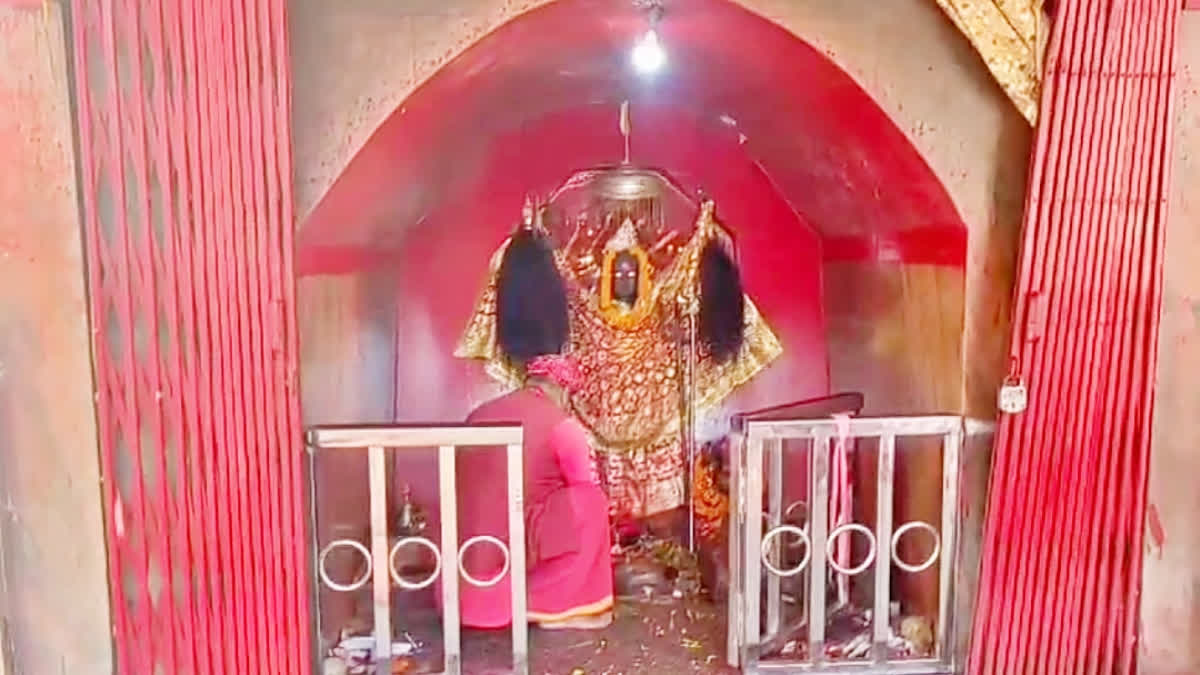Motihari: Across the border, amid the misty hills of Nepal’s Bara district, the Gadhimai Fair takes place every five years— marking a gathering of devotion and tradition. Yet, beneath the vibrant festivities, the air gets thick with the cries of thousands of animals, their lives offered in an ancient ritual of sacrifice. Animal rights activists in India and abroad have long raised concerns over the brutality of mass sacrifices and this year too, they have tried to intervene by writing to the Nepal leaders as well as stopping transport of livestock from East Champaran route.
The fair, inaugurated this year on December 2 by Nepal’s Vice President Ram Sahay Yadav, has drawn millions of devotees from Nepal, India, Bhutan, and Bangladesh. Lasting until December 15, the fair culminates in a controversial ritual—a mass animal sacrifice on December 9, where thousands of buffalo calves and other animals will be offered to the deity Gadhimai in gratitude for fulfilling the devotees’ wishes.
Considered and observed as an age-old tradition, the fair has sparked fierce debates and protests across borders.

A Ritual Steeped in History
The Gadhimai fair, known for its grandeur and religious significance, also has been listed in the Guinness Book of World Records for the largest mass sacrifice of animals. According to tradition, the Dom Raj of Varanasi sends the first batch of 5,100 animals for sacrifice, a practice believed to cleanse sins and bring blessings. This year, over five lakh devotees are arriving daily.
On December 8, a special puja will be performed, marking the peak of the fair. On December 9, the buffalo calves will be sacrificed, followed by other animals and birds. For many, this is a sacred act of devotion; for others, it is an inhumane practice that must be stopped.

Faith Meets Resistance
While the fair brings millions together in faith, it also stirs voices of dissent. Animal rights activists in India and abroad have long raised concerns over the brutality of mass sacrifices. Maneka Gandhi, a staunch advocate for animal rights in India, had written to Nepal’s Vice President, urging him not to attend the fair. She highlighted the 2019 Nepal Supreme Court order, which called for a gradual reduction in animal sacrifices, citing that such events hurt animal welfare and human compassion.
In her letter, Gandhi wrote, “If you are present during the practice of mass sacrifice of animals in an organized and painful manner, it will promote those activities. This is against the order of the Supreme Court of Nepal.”
A Border under Watch
Closer to home, the fair has spurred heightened activity along the Indo-Nepal border in Bihar’s East Champaran district. Animal smugglers, exploiting the demand for sacrificial animals, have been transporting livestock across the border. However, local authorities, aided by animal rights organizations like the Vishwa Prani Kalyan Mandal, have stepped up efforts to curb the illegal trade.

East Champaran SP Swarn Prabhat revealed that over 50 animals, including buffaloes, pigeons, and mules, have been rescued in recent days, and 10 smugglers have been arrested. “The possibility of animal smuggling increases during the Gadhimai fair. We have launched a campaign to address this issue,” said Prabhat.
'We Are Not Against Faith'
Dayanand Swami, director of the Vishwa Prani Kalyan Mandal, has been leading the charge against the smuggling and sacrifice of animals. Stationed at the border with his team, Swami’s mission is clear: to prevent animals from being taken to the Gadhimai fair. “We are not against anyone’s faith,” Swami said during a press conference. “But how justified is it to kill someone for one’s belief? Most of the animals for sacrifice come from India, and this needs to stop.”

For devotees, the Gadhimai fair represents a promise fulfilled—a moment to thank the deity for answered prayers. However, for activists and global observers, it is a disturbing spectacle that clashes with modern ideals of compassion and animal rights. The 2019 Nepal Supreme Court order to gradually phase out sacrifices acknowledges the religious sentiments involved while also urging a shift toward less violent practices.
But change is slow. Many devotees argue that it is not just a ritual but a means to uphold tradition, repay divine debts, and seek future blessings.
As the Gadhimai fair continues, it remains a stage for conflicting narratives. On one side are the millions of devotees, for whom the sacrifices symbolize hope and faith; on the other are activists and organizations fighting for a more humane expression of devotion.



